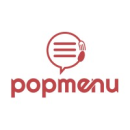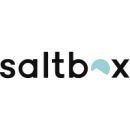Last year was a huge wake up call for everyone still sleeping on the Atlanta tech scene.
Calendly banged the gong until it shattered, raising a $350 million funding round. The top 10 funding rounds of the year totaled $1.74 billion. In addition to funding, Mailchimp, arguably one of the most successful bootstrapped tech companies, was acquired by Intuit for a cool $5.7 billion. And Goldman Sachs acquired GreenSky in a deal worth $2.24 billion.
Big numbers like these send a clear signal that Atlanta tech is thriving, but they don’t tell the entire story. Yes, Atlanta is filled with numerous Fortune 500 companies and is home to the busiest airport in the United States. Diversity has also played a major role in the city’s tech success. Ana Kramer, writing for Protocol, noted that Atlanta is filled with top-tier colleges that produce diverse graduating classes, including Georgia Tech, the Savannah College of Art and Design and Spelman. According to a study by Opportunity Hub, 25 percent of tech workers in Atlanta are Black — a CBRE study found that 36 percent of local tech workers identify as Black or Hispanic — compared to just 6.4 percent in San Francisco.
These are the companies and factors that have helped Atlanta become the East Coast’s next big tech hub. As for what companies will lead the next wave of growth, we have a few ideas. This hand-selected list features local companies founded after 2016 that are entering the new year with major momentum. Which one of these under-the-radar startups could take the torch from Calendly, Mailchimp or GreenSky? Read on to find out.

What they do: Codoxo has developed patented AI technology specifically designed to cut healthcare costs. It does this by focusing on payment integrity, fraud and provider education, with the goal being to drive down costs by discovering mistakes in claims and billing as well as potentially fraudulent claims.
Year founded: 2016
Why we’re watching: A 2019 report from the Journal of the American Medical Association estimated that waste costs the healthcare system between $760 billion to $935 billion per year. According to Codoxo, its technology has already helped make a small dent in this figure by helping customers identify $500 million worth of savings. Another reason to get excited about Codoxois? Its local roots: Co-founder and CEO Musheer Ahmed earned his Bachelor’s of Science. and PhD in computer science at Georgia Tech while co-founder and chief scientist Mustaque Ahamad is a professor of computer science at Tech. According to Crunchbase, Codoxo has raised $9.4 million in total funding.

What they do: Cove.tool has developed web-based tools that leverage machine learning to help architectural, engineering and construction firms work more efficiently, cut costs and stay environmentally compliant. The suite of cove.tool products includes solutions for collaborative building designs, performance modeling and material sourcing.
Year founded: 2016
Why we’re watching: Buildings are sneakily big polluters, and cove.tool estimates that its technology, which is designed to make it easier to design both more energy-efficient buildings and source building materials with a lower carbon footprint, helped offset 28.5 million tons of carbon emissions alone in 2021. Speaking of 2021, cove.tool ended the year with a $30 million Series B that featured participation from Robert Downey Jr.’s venture capital fund, the FootPrint Coalition. Cove.tool has a headcount north of 60 people and is currently hiring for nine open roles.
What they do: Evident has developed enterprise technology intended to help businesses mitigate risk by streamlining the process of insurance verification for third-party vendors. In addition to ensuring a vendor has up-to-date and compliant insurance coverage, Evident also offers tools to verify both an individual’s identity and a business’ identity as well as a solution for background checks.
Year founded: 2016
Why we’re watching: Atlanta has a burgeoning cybersecurity scene, and Evident has managed to carve out a sizable niche for itself within it. Since launching, the company has raised $28.8 million in funding according to Crunchbase, opened an office in Poland and added one of the biggest names in tech, Airbnb, to its client list.
What they do: Food waste is a major problem, and Goodr is attempting to tackle it with what it has dubbed a “food surplus management platform.” The platform allows companies to schedule pickups for unused food that can be tracked in an app and written off as a taxable donation, with edible food going to local nonprofits and inedible items to organic recycling companies.
Year founded: 2017
Why we’re watching: Goodr has formed partnerships with the NBA, Hartsfield-Jackson Atlanta International Airport and Porsche, to name a few, which the company says has helped it serve 30 million meals, divert 3 million pounds of food from landfills and enabled its corporate partners to rack up $6.3 million in tax deductions since its founding. The company has raised $4.1 million in funding according to Crunchbase and also recently extended its reach to children via its founder and CEO, Jasmine Crowe, who authored a children’s book about the fight against hunger called “Everybody Eats.”
What they do: Failed payments are an annoyance for consumers and a major and costly problem for companies. Gravy addresses this problem by integrating with a company’s sales tech and having a real human reach out to customers when their payments fail to help remedy the issue.
Year founded: 2017
Why we’re watching: One billion dollars is a lot of money. It’s also exactly what Gravy hopes to have helped its customers recover in failed payments by 2023 per a TechCrunch interview conducted with CEO Casey Graham. The company received a boost toward that goal last year, raising $4.6 million in a Series A round, which according to Crunchbase boosted its total funding to $7 million.

What they do: Robotic lawn mowers are coming to a golf course or football field near you thanks to companies like Greenzie. The startup is building the software and accompanying hardware needed for commercial lawn mowers to operate autonomously, with the goal being for humans to take on landscaping work that requires more detail and creativity.
Year founded: 2018
Why we’re watching: According to data from Statista, landscaping is a $114.6 billion industry, albeit one that has largely been ignored by startups. That is changing, though, and investors are taking notice. Greenzie closed a $4 million funding round last fall, with the proceeds earmarked for both tech investments and hiring. Another reason to keep an eye on Greenzie? It’s the first company to launch out of the Atlanta Ventures Studio incubator, and its success could encourage more local founders to set up shop there.
What they do: Hermeus has incredibly ambitious plans for the future of air travel, with the company currently designing an engine that will power a commercial aircraft — which it will also design — capable of reaching Mach 5, five times the speed of sound. At that speed, around 3,800 mph, the aircraft would be able to fly from New York to London in just 90 minutes.
Year founded: 2018
Why we’re watching: Hermeus has big goals, and it has formed big partnerships to help hit them. It’s working with the United States Air Force, which invested $60 million in the company last year, and has also formed a research and development partnership with NASA. That funding will be used for hiring, with the company currently seeking applications across seven different teams. It will also go toward flight testing, with Hermeus’ first aircraft, the autonomous “Quarterhorse,” set to hit the skies in 2023. If all goes according to plan, a passenger aircraft will debut by 2029.
What they do: Hudson MX is an adtech company whose technology is designed to simplify and streamline the media buying and accounting processes for advertising agencies.
Year founded: 2016
Why we’re watching: This time last year, Hudson MX was closing a $63.5 million Series D funding round, which brought the company’s total funding to $73.5 million per Crunchbase. The company’s growth was impressive prior to that round, with Adweek reporting that headcount had grown by 75 percent — to 430 employees — from January 2020 to January 2021. Hudson MX is still hiring and currently has nearly 30 open roles. Many of those are senior roles, but the company also operates what it calls a “career acceleration program,” a one-year full-time position that offers training and career development resources to those with limited or no industry experience.
What they do: Testing apps isn’t easy, especially at scale, but Kobiton has developed technology to change that. Its app testing suite is powered by artificial intelligence and is able to automate app testing across a wide range of mobile devices, with its software capable of capturing UX/UI hangups, performance issues and bugs.
Year founded: 2016
Why we’re watching: Mobile apps are a really big deal, which means companies of all shapes and sizes have use for Kobiton’s tech. Indeed, the company has already worked with some of the biggest names in retail, tech and business, including Office Depot, Uber and Deloitte Digital. If the past two years are any indication then more growth is in the cards for Kobiton. In 2020 it acquired mobile testing platform Mobile Labs, Inc. and in 2021 the company raised a $12 million funding round.
What they do: KyckGlobal is a fintech company focused on payments. More specifically, the company has developed a payment platform that enables businesses to pay employees, contractors and vendors in over a dozen different ways, like PayPal, gift cards and cash, with the goal being to remove the need to adopt new payment systems as a result of scaling.
Year founded: 2018
Why we’re watching: Payments can be tricky to track, especially if a company has to pay gig workers an hourly wage through PayPal, salary workers via direct deposit and issue gift cards to employees as rewards for hard work. In addition to executing those payments, KyckGlobal also offers solutions that automate reporting and compliance paperwork. This comprehensive approach has helped it gain early traction, with KyckGlobal pulling in $8 million in funding since its founding, per Crunchbase.

What they do: Layr is an insurtech company that makes it easier for small businesses to acquire insurance. It does this through machine learning and artificial intelligence technology that is designed to quickly evaluate risk and match customers with potential carriers.
Year founded: 2016
Why we’re watching: Layr has some serious backing from the insurance industry. The company came out of Lloyd’s Lab, an insurtech accelerator run by the famous insurance exchange Lloyd’s of London. Layr raised a $5 million seed round in 2020 and in 2021 it was accepted into the BrokerTech Ventures accelerator, a five-week program offering mentorship and access to BrokerTech Ventures’ distribution platform. Layr is currently hiring for a variety of roles on its sales, product and customer success teams.
What they do: Momnt is a fintech company that’s lending platform is designed to help merchants drive more sales by creating the ability for businesses to offer loans directly to customers for its products and services. Momnt uses machine learning and artificial intelligence to ascertain a customer’s credit worthiness, which gives it the ability to offer custom loans in real time to consumers.
Year founded: 2019
Why we’re watching: Barclay Keith, Lena McDearmid and Brian Lanehart, Momnt’s’ three founders, have all held leadership positions at Atlanta-based fintech giant GreenSky, so it’s safe to say they know a thing or two about the industry. Investors feel the same way, apparently, and have invested $8.5 million into Momnt since 2020 according to Crunchbase data, with its latest round a $7 million Series A. Some of that funding appears to be going toward hiring as Momnt has around a dozen open roles at the time of this writing.
What they do: PadSplit is attempting to do its part to help solve the country’s affordable housing crisis through a platform that enables people to find and rent rooms in single-family homes entirely online. The company is also trying to make it easier for real estate investors to increase their income by both handling the process of finding renters and connecting them with contractors who can optimize their properties for renting.
Year founded: 2017
Why we’re watching: PadSplit’s rooms are designed to be both affordable — the company says renters can save hundreds compared to traditional renting — and easy to move into. The entire application process is conducted virtually, there is no minimum credit score to apply and tenants can pay rent weekly, a cost that also includes utilities and Wi-Fi. PadSplit’s social mission and its promise to help real estate investors maximize their returns has helped it pull in $35.2 million in funding per Crunchbase, with $20.5 million of that coming in a single round from November. The company is currently active in several cities across the south and midwest and is hiring for nearly a dozen open roles.

What they do: Polygon.io is developing technology that makes it easier for companies — and by extension the software developers at those companies — to integrate both real-time and historical stock, foreign exchange and crypto data into products.
Year founded: 2016
Why we’re watching: Polygon.io works with some of the biggest names in both trading and tech, such as Google, Robinhood and Revolut. Its founder, Quinton Pike, is an Atlanta tech veteran whose resume is a who’s who of local corporate powerhouses, including Coca-Cola, Cartoon Network and CNN. The company has raised $6.4 million in funding according to Crunchbase and is currently hiring for engineering, marketing and design roles.
What they do: Popmenu aims to help restaurants do more with their websites. In addition to offering website building and SEO services, Popmenu also offers solutions for online menus and ordering, customer reviews and marketing automation.
Year founded: 2016
Why we’re watching: Online ordering has skyrocketed as a result of the pandemic, but for many restaurants the challenge is not keeping up with demand but paying the fees charged by companies that facilitate these orders. Popmenu offers a different option, one that is commission-free, and according to the company more than 5,000 restaurants use its technology. That traction helped it land a $65 million Series C last fall. Popmenu currently has more than 25 open roles across multiple teams, including engineering, marketing and sales.
What they do: Qoins is a fintech company dedicated to helping people pay down their debts quicker and reach their savings goals ahead of schedule. It does this through a “set and forget” mechanism that enables users to contribute money toward their goals via either automated withdrawals that occur weekly or per paycheck or by rounding up purchases to the nearest dollar.
Year founded: 2016
Why we’re watching: 2021 was a big year for Qoins. The company raised $1.5 million in venture capital funding and a further $143,000 through the crowd investing platform Republic. Co-founders Nate Washington and Christian Zimmerman were named to the social impact segment of the Forbes 30 Under 30 list. In addition, Qoins began preparing to launch its own debit card and hit a major milestone with $20 million in debt paid down through its platform.
What they do: Reibus is a marketplace that connects buyers and sellers of industrial metal products, with the goal being to enable both sides to do more business. In addition to bringing companies in need of materials together with suppliers, Reibus offers solutions for order fulfillment as well as financing.
Year founded: 2018
Why we’re watching: The back half of 2021 was dominated by discussions of supply chain issues, but Reibus’ growth is due to much more than being in the right industry at the right time. Its solution has found many fans, with the company reportedly growing revenue by 7x from 2020 to 2021. That growth caught the attention of the SoftBank Vision Fund 2, which led the company’s $75 million Series B round, announced this past December. CEO John Armstrong told Bloomberg the round would go in part to expanding into Europe and Asia through new offices in Berlin and Singapore, respectively. Hiring is also on the agenda, and Reibus currently has 26 open roles on Builtin.com.
What they do: Rialtic is a healthtech company working to drive down the cost of healthcare. It’s doing so by focusing on payment accuracy, with an enterprise platform that can both be used to process claims and build custom policies.
Year founded: 2020
Why we’re watching: Rialtic came out of stealth mode in a big way, landing $16.2 million in venture capital in December of 2020. The company has continued to grow since then. According to Rialtic, its headcount is now more than 50 people and it’s currently looking to bring on more than 10 new employees, including a handful of senior engineers as well as a sales director. Speaking of growth, CEO and founder Doug Williams knows a few things about building a healthtech company from his time spent as CEO of one of Atlanta’s biggest healthtech companies, Cotiviti.

What they do: Saltbox is bringing coworking to the world of e-commerce with “co-warehousing” spaces that give online merchants access to office space, warehousing facilities and photo studios. The company also offers storage, on-demand workers who can handle product receiving and sorting duties as well as returns, and shipping services.
Year founded: 2019
Why we’re watching: On-demand warehousing has been a fast-growing space in the tech industry for years, but like all things e-commerce, its growth has been accelerated by the pandemic. That said, Saltbox has carved out a unique niche for itself in the industry, with its community-based approach that encourages companies to see warehouses as more than storage and shipping facilities. Saltbox has been well-received since its launch and has grown from a single warehouse in Atlanta to five facilities from coast to coast and has raised $13.8 million in funding according to Crunchbase, with $10.6 million of that coming from its 2021 Series A.
What they do: As its name suggests, SecurEnds is in the business of security. Its AI and ML-powered platform automates user access reviews, which are critical for compliance purposes as they dictate who in an organization has access to what information.
Year founded: 2017
Why we’re watching: SecurEnds had been bootstrapped until last summer when the company raised a $21 million Series A. Even without VC support it still managed to acquire some pretty well-known customers, including Porsche, AARP and loanDepot. In an interview with VentureBeat on the funding round, the company said part of the money would be used to make 125 hires across the U.S., Europe and India
What they do: Salesforce has a whole host of software integrations and automation tools, which can make it difficult to fully map out how a change to one tool or service will impact the entire stack. Sonar has developed software that provides a complete overview of a team’s CRM stack as well as each component’s dependencies and potential issues that doing “X” could create for “Y.”
Year founded: 2018
Why we’re watching: Sonar has seen major growth in the past few years, with the company telling online publication Hypepotamus that its revenue and customer count both grew by 10x from March of 2020 to March of 2021. Some of those customers in that count include Drift, ChowNow and Atlanta’s own Salesloft. The company also told the outlet that it would use its $12 million Series A, announced in March of ‘21, to triple headcount to 75 people.

What they do: The Steady app is designed to help users boost their incomes by connecting them with local employment opportunities and gig work as well as promotional offers for new users. The company has also partnered with The Workers Lab, an organization that develops new tools to help workers and invests in entrepreneurs with the same mission, to launch the “Emergency Cash Grant” program for users impacted by the pandemic.
Year founded: 2017
Why we’re watching: Steady’s growth can be tracked in part through its users. The company says users have made more than $7 million on the app and that an additional $4 million has been distributed via grants. Steady has raised $29.5 million in funding per Crunchbase, and its roster of investors includes NBA legend Shaquille O’Neal. Along with helping users make extra money, Steady has also created technology that makes it easier for state governments to verify the income of gig workers, thus simplifying the income verification process required by many social assistance programs.

























